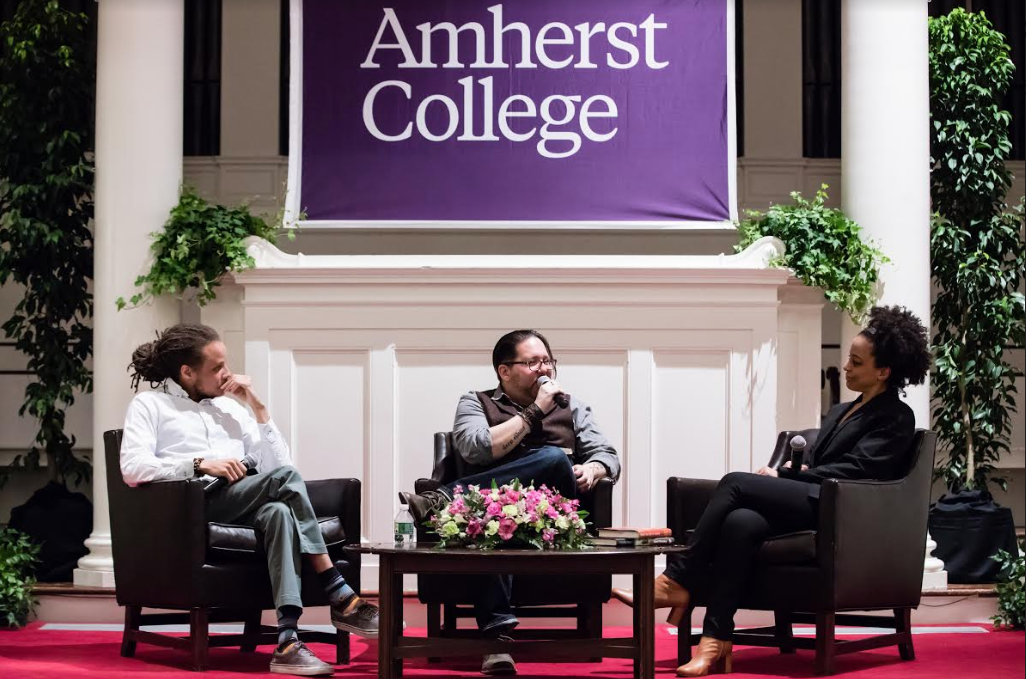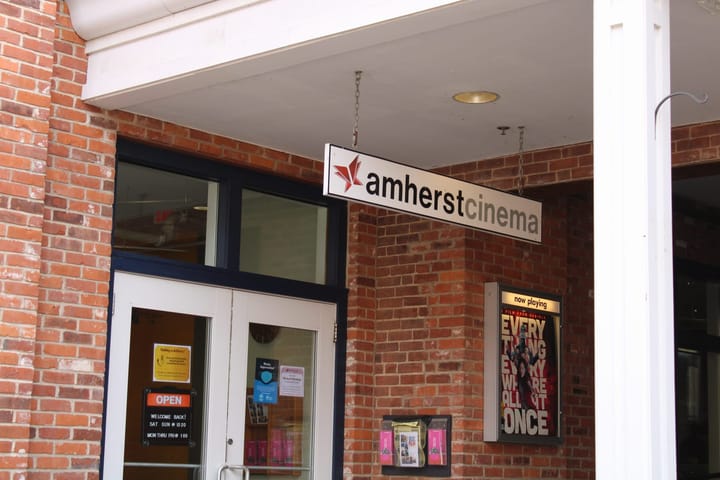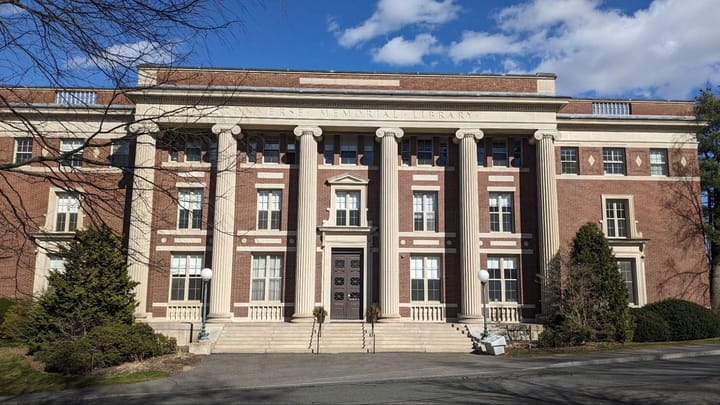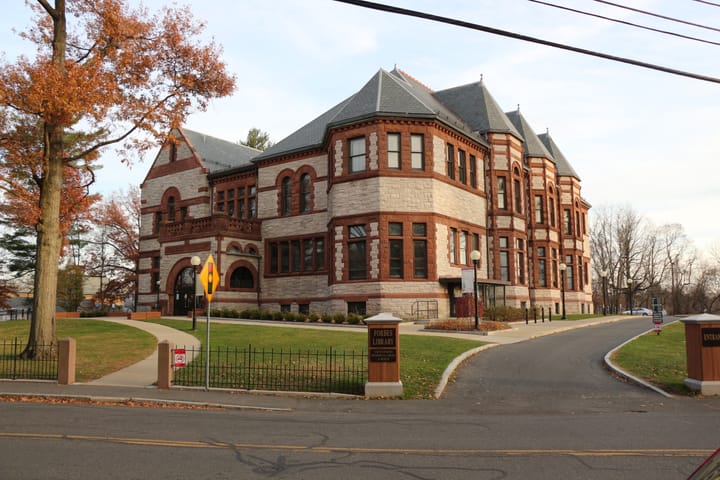National Book Award Finalists Discuss #MeToo

The college hosted a conversation with 2018 National Book Award for Fiction finalists Jamel Brinkley and Brandon Hobson on Thursday, Feb. 28. The conversation, part of the fourth annual LitFest, was moderated by Rebecca Carroll, a critic for the Los Angeles Times. LitFest is a three-day event in service of “illuminating great writing & Amherst College’s literary life.”
The event began with the authors reading from their recently published works — Brinkley from his collection of short stories entitled “A Lucky Man” and Hobson from his book “Where the Dead Sit Talking.”
Brinkley said during the conversation that his short stories veered towards the lengthier, almost novelistic side, and tended to center their focus on male characters. In these stories, women are peripheral characters, oftentimes sexualized or characterized as archetypal manic-pixie dream girls, as in the first story, “Nothing More Than A Bubble.” In other instances, they acted as a bridge between male characters, performing emotional labor to help men resolve their differences. Such characteristics prompted questions including: “How should one tell stories about masculinity in the wake of the #MeToo movement?” and “Is it possible to critique and describe toxic masculinity and not be entrapped in that space?”
During the conversation, the audience was asked to submit questions, which the moderator posed to the two authors. In a question about the gendered nature of his characters, Brinkley acknowledged that his protagonists were male in all of his stories but one. To escape that space, he asserted he had to “widen the lens,” and “make the story smarter than the character.” Having this wider view — rather than being stuck in the character’s head — allows the reader to view the stories as critiques of behavior, rather than as replications of structures of oppression.
Carroll then turned the conversation to discuss the implications of #MeToo. Brinkley noted how he did not “set out” to make his collection “timely,” but that it had been labeled as such and swept up into the movement. One question particularly stuck out to Hobson, an enrolled member of the Cherokee Nation Tribe of Oklahoma. Carroll asked him about Sherman Alexie, author of the seminal “The Absolutely True Story of a Part-Time Indian,” who has come under sexual misconduct allegations in the wave of #MeToo. Hobson responded that there are many Native American authors besides Alexie.
The conversation also covered a range of other topics, including the texture of sound in writing and social justice. Hobson recounted that, as a young writer, he often submitted works for publication “too soon” and encouraged prospective authors to have patience. Brinkley also discussed his aversion to the word “empathy.” He described the term as a form of “emotional tourism”— soaking up someone else’s experiences as one’s own. He instead advocated using the word “curiosity;” curiosity conveys the fundamental differences in our experiences. And while many might find his stories difficult to read due to their often painful subjects, Brinkley ended the talk by speaking about the importance of love in his stories.





Comments ()